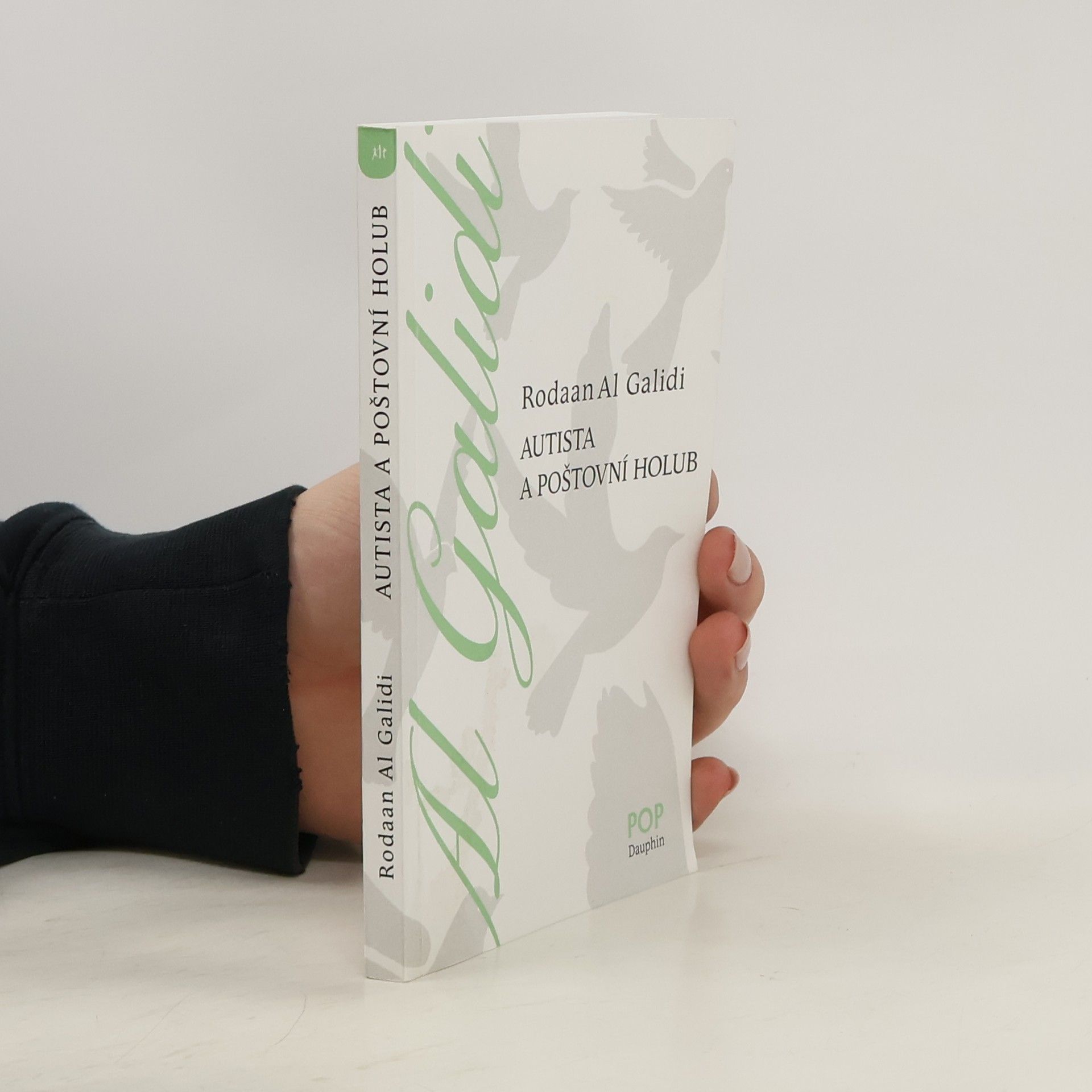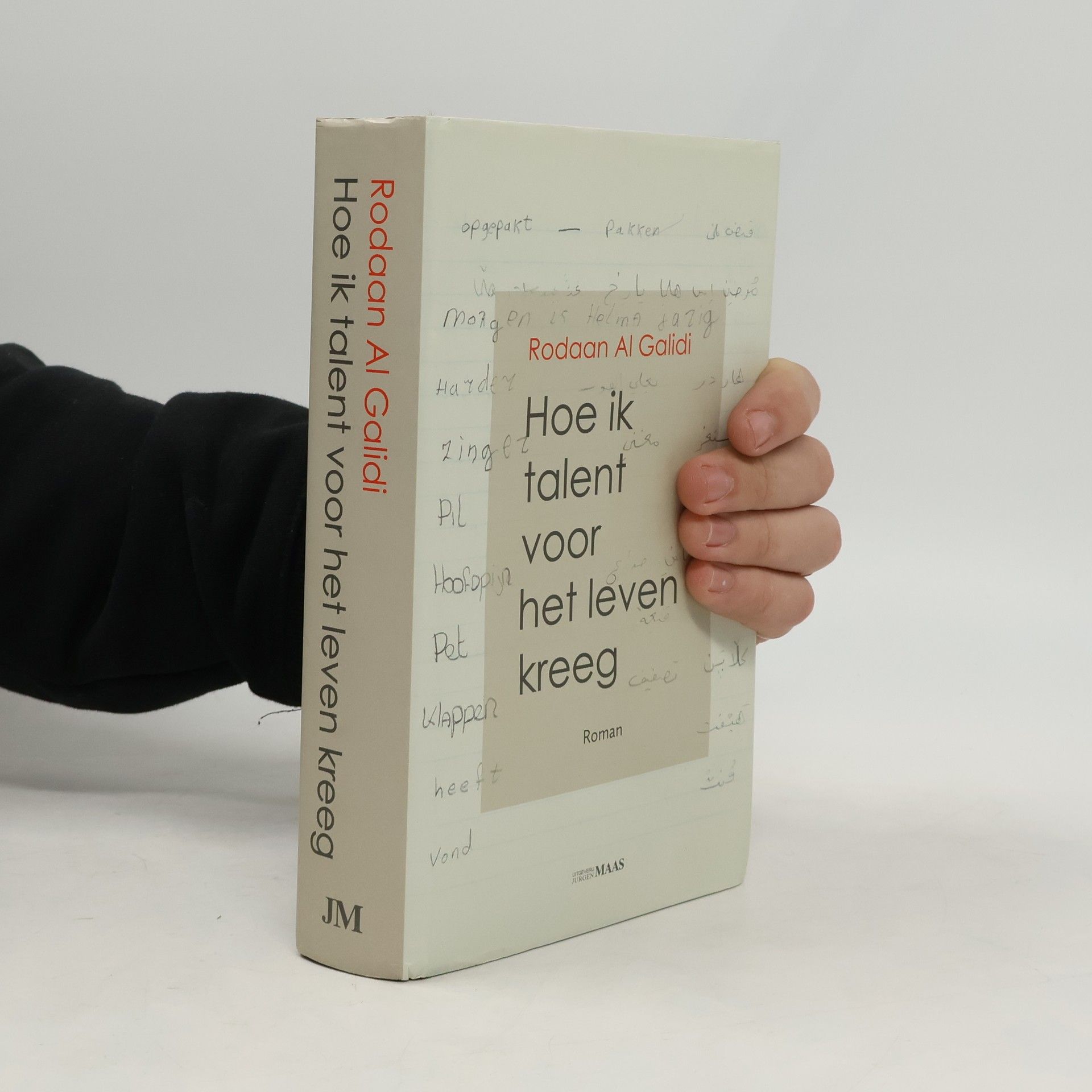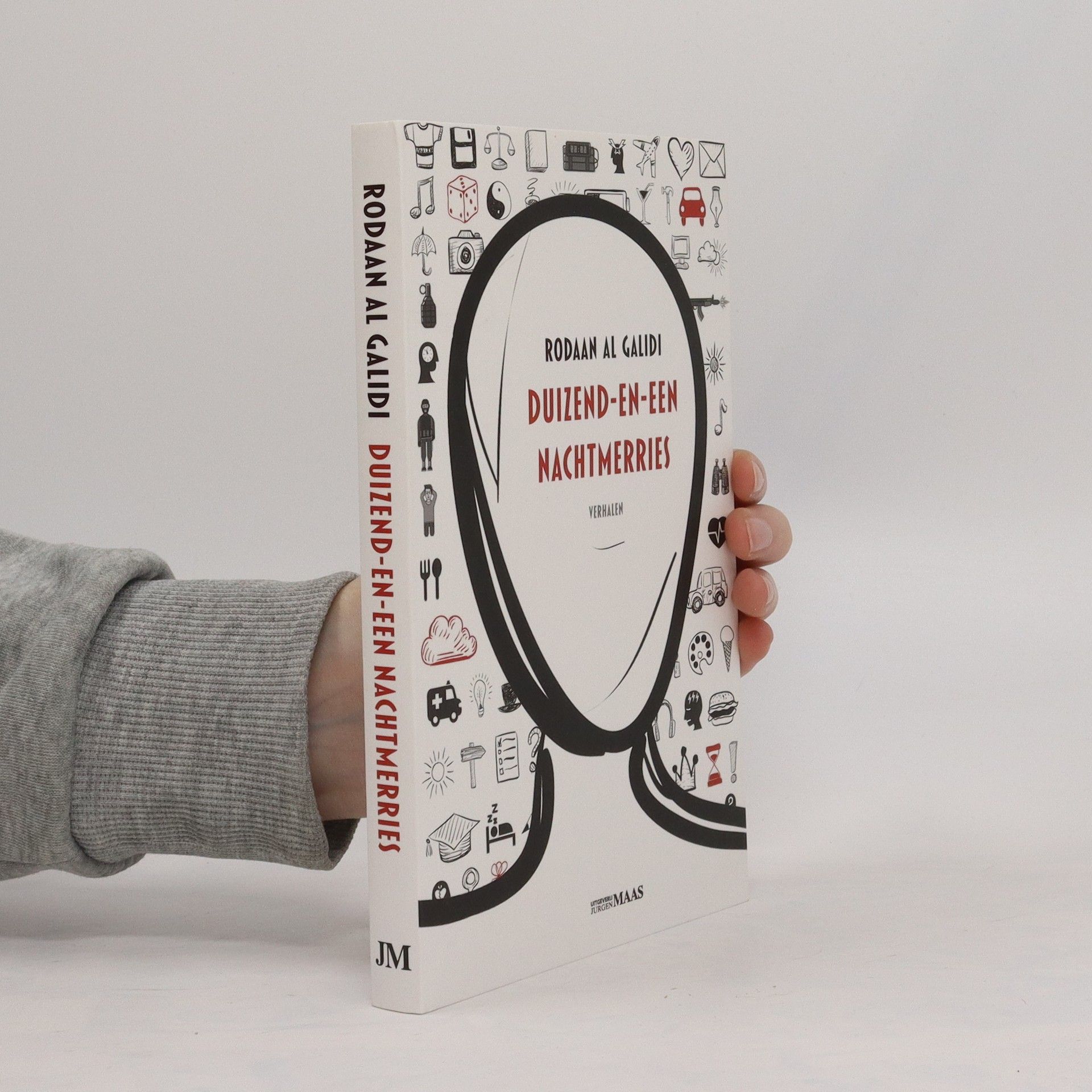Semmier Kariem vlucht uit Irak. Zeven jaar van honger, verdwalen en angst later landt hij op elf februari om negen uur - of was het om elf uur op negen februari - op Schiphol. In de chaos van die eerste dagen in Nederland kan hij zich het precieze tijdstip niet meer herinneren. Hij vraagt asiel aan. Wat hij niet weet is dat hiermee het langste wachten van zijn leven begint, in het asielzoekerscentrum, een wachtkamer die hij deelt met vijfhonderd anderen. Intussen bestudeert Semmier het land waar hij misschien ooit deel van uit mag maken, maar ook al verblijft hij er nu, hij blijft een buitenstaander. 'Nederland had mij drie dingen geleerd: niet meer respect hebben voor Europa dan voorzichtigheid. Een nette leugen is beter dan de rommelige waarheid. En ik kende nu het verschil tussen een omafiets en een vrouwenfiets.'
Rodaan Al Galidi Boeken
Rodan Al Galidi is een auteur van Iraakse afkomst die in het Nederlands schrijft. Zijn pad naar de literatuur was onconventioneel; na zijn studie bouwkunde in Irak vluchtte hij voor de dienstplicht en kwam na een lange reis in Nederland terecht, waar hem formele taalles werd ontzegd. Uit deze tegenspoed ontsproot echter zijn literaire carrière, waarbij hij zichzelf de Nederlandse taal leerde en begon te schrijven. Zijn werken, uitgegeven onder de naam Rodaan Al Galidi, verkennen thema's als identiteit, ballingschap en de zoektocht naar ergens thuis horen. Ondanks aanvankelijke integratieproblemen heeft hij erkenning verworven als schrijver in Vlaanderen, wat getuigt van een opmerkelijk vermogen om levenshindernissen om te zetten in artistieke expressie.






Semmier moet vluchten uit Irak en komt naar Nederland. Hij woont op veel plekken in Nederland. Maar altijd tijdelijk. En altijd samen met andere vluchtelingen. In dit verhaal vertelt hij over zichzelf, en al die andere vluchtelingen. Hij vertelt dat niemand mag werken, of naar school gaan, totdat ze een status krijgen.Een verhaal vol humor, Semmier kijkt op een grappige manier naar de mensen om hem heen. Naar de Nederlanders, en naar de andere vluchtelingen.Ik leer nog een taal: het ‘Asielzoekers’. Dat is een mix van Nederlands, Engels, Russisch, Arabisch, Roemeens, Koerdisch, Somalisch, enzovoort. Een voorbeeld: een asielzoeker wil zeggen dat er een oude man op het gras zit. Hij zegt dan: ‘Gras met een man zitten op het grijze haar.’ Of: ‘Oud gras zag een man zitten.’ Soms klinkt het Asielzoekers wel als een gedicht.
The Three Princes of Serendip: New Tellings of Old Tales for Everyone
- 136bladzijden
- 5 uur lezen
Rooted in diverse cultural traditions from Europe, Asia, and Africa, this collection features twenty fables and folktales that reflect the Arabic storytelling heritage. Originally learned in Iraq, the tales were adapted by Rodaan Al Galidi after his migration to the Netherlands, showcasing themes of love, acceptance, and caution against folly. Enhanced by Geertje Aalders' cut-paper illustrations, these enchanting stories introduce American readers to unfamiliar characters like donkeys, roosters, kings, and paupers, offering timeless wisdom.
This feast of Middle Eastern folklore from an Iraqi storyteller is paired with vibrant cut-paper art. The twenty fables and folktales in this illustrated storybook have taken a long journey. Many have roots that stretch across Europe, Asia, and Africa, but when writer and gatherer of tales Rodaan Al Galidi learned them in his homeland of Iraq, it was as Arabic folktales and as part of the Arabic storytelling tradition. When he migrated to the Netherlands, he shaped twenty of those tales into his debut book for children, which was translated to English by Laura Watkinson. Filled with wisdom about love and acceptance, and warnings against folly, these elegantly translated stories of donkeys and roosters, kings, sheikhs, and paupers are exquisitely illustrated by cut-paper artist Geertje Aalders. Beautifully packaged, Arabic Folktales is a rich and varied introduction to the world of Middle Eastern folklore.
After nine years in a Dutch asylum centre, Samir finally has the chance to start his new life as a European citizen. But it's a full-time occupation for him to discover that integration needs a dog leash and a rubber ball. Happily, this distracts him from what is happening in his native land, Iraq, and from Leda, who stole his heart in the first village he stayed in after being granted refugee status. In this hilarious adventure story, we follow the lovable and gritty Samir as he talks his way into every type of accommodation to be found in this new country full of incomprehensible rules.
Autista a poštovní holub
- 176bladzijden
- 7 uur lezen
Janine ve svých sedmnácti letech podivně otěhotní. Tak trochu zvláštní nehoda, neboť otcem je brčko. Narodí se jí syn Geert postižený Aspergerovým syndromem. Geniální autista.
Janine, siedemnastolatka, pali trawkę w stodole, z trzema przyjaciółmi gejami. Nagle czuje, że ma owulację – prosi kolegów, by urządzili sobie zawody: „ten, kto najszybciej dojdzie, zostanie ojcem”. Zebrana w misce sperma zostaje wdmuchnięta w Janine za pomocą słomki. Dziewięć miesięcy później na świat przychodzi Geert, genialny autysta. Kiedy staje się światowej sławy lutnikiem amatorem, znanym z tego, że buduje skrzypce ze starych kanap, matka oznajmia mu, że najwyższy czas, by wyprowadził się z domu. Rodaan al Galidi, z wykształcenia inżynier budowlany, uciekł z Iraku, mieszkał w wielu krajach, by w końcu znaleźć się w Holandii. Osiem lat spędził w ośrodku dla uchodźców. Samodzielnie nauczył się niderlandzkiego i zaczął pisać w tym języku. Za powieść „Nie wysyłaj mnie do Staphorst” w 2011 roku uhonorowano go Europejską Nagrodą Literacką; w tym samym roku odmówiono mu przyznania obywatelstwa Holandii. „Sam jestem uchodźcą i wiem, że język fikcji często lepiej oddaje prawdę niż literatura faktu” (Rodaan al Galidi dla „The Guardian”).
